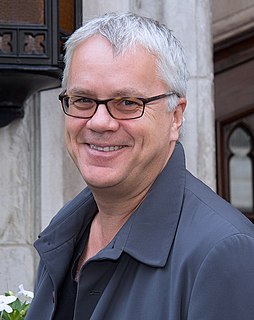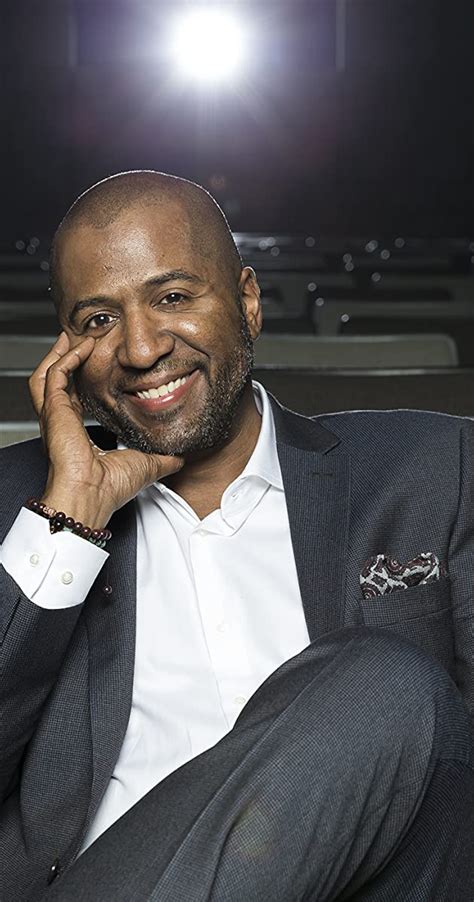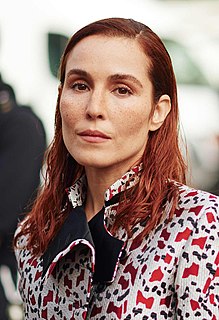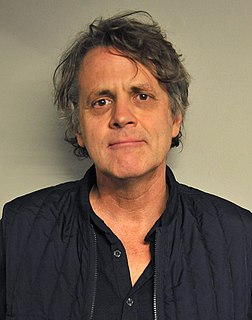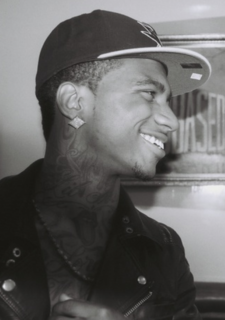A Quote by Tim Robbins
I don't think people have been able to deal with the fact that African American filmmakers can make movies about life and relationships.
Quote Topics
Related Quotes
We were segregated throughout the community, and it was pretty brutal, actually. It didn't appear to be, on the surface.People got along and we had great relationships, but there was discrimination that impacted adversely the ability of the African-American community to progress. People did not - were in denial about that fact.
When I was a kid, I'd go to the African-American section in the bookstore, and I'd try and find African-American people I hadn't read before. So in that sense the category was useful to me. But it's not useful to me as I write. I don't sit down to write an African-American zombie story or an African-American story about elevators. I'm writing a story about elevators which happens to talk about race in different ways. Or I'm writing a zombie novel which doesn't have that much to do with being black in America. That novel is really about survival.
You know, when Trayvon Martin was first shot I said that this could have been my son. Another way of saying that is Trayvon Martin could have been me 35 years ago. And when you think about why, in the African American community at least, there's a lot of pain around what happened here, I think it's important to recognize that the African American community is looking at this issue through a set of experiences and a history that doesn't go away.
I think we have to get beyond the idea that we have to categorize people. We can now have action movies with two stars where one might be African American and one might be Asian American. One of them doesn't have to be white, and the other one doesn't have to be the ethnic sidekick. We're way over that. And I think it's happening in society, too.
I think the one thing that I've experienced with American films is just that the size tends to be so much bigger, the budgets have been bigger, the size of the sets have been bigger, the number of people working on them is bigger, but that's not to say that I haven't been able to get close to people or develop good relationships.
Well, in our industry it's that the movies cost so much money to make they have to appeal to a broad audience. And I think that's part of what will loosen up in the future, as technology makes it cheaper, you'll be able to make films for a more selective audience. I think people will be able to make more personal movies.
If you deconstruct the movies that have done well, Pixar-type movies that do incredibly well and make hundreds of millions of dollars, they have a strain of decency and conservatism that maybe even their filmmakers don't even recognize. Yet, we cross our fingers that by mistake, liberal filmmakers and liberal producers are going to by mistake make conservative movies. We have to become invested in it, or else we have no excuse to complain.
Branding says a lot about luxury and about exclusion and about the choices that manufacturers make, but I think that what society does with it after it's produced is something else. And the African-American community has always been expert at taking things and repurposing them toward their own ends.
Michael Jackson fundamentally altered the terms of the debate about African American music. Remember, he was a chocolate, cherubic-faced genius with an African American halo. He had an Afro halo. He was a kid who was capable of embodying all of the high possibilities and the deep griefs that besieged the African American psyche.
I think if some people know anything about African cinema it's something like the The Gods Must Be Crazy, which is such an awful, condescending movie that debases African participation, and anything I can do to shift that and draw attention to rich and widely varied films that come from there- because there's all kinds of filmmakers from Senegal, you have Mambety, and Haroun with Grigris.
